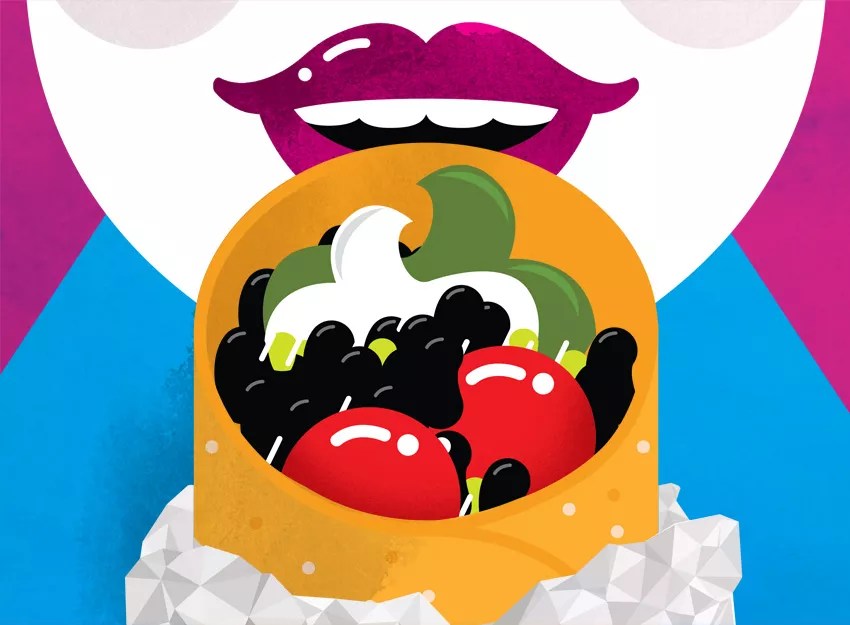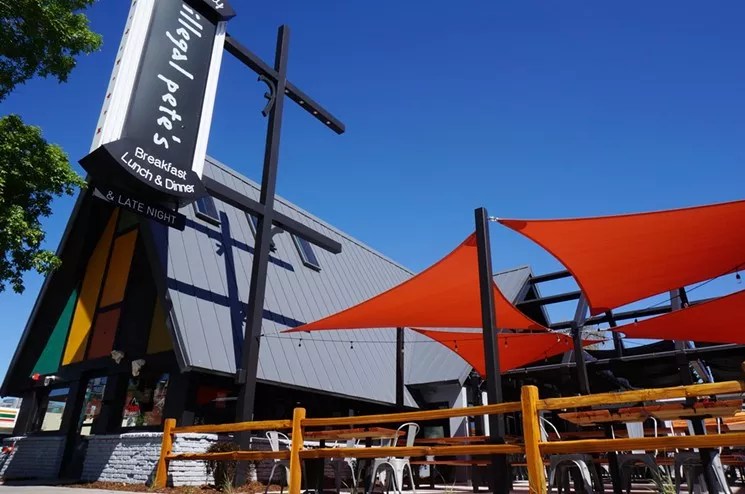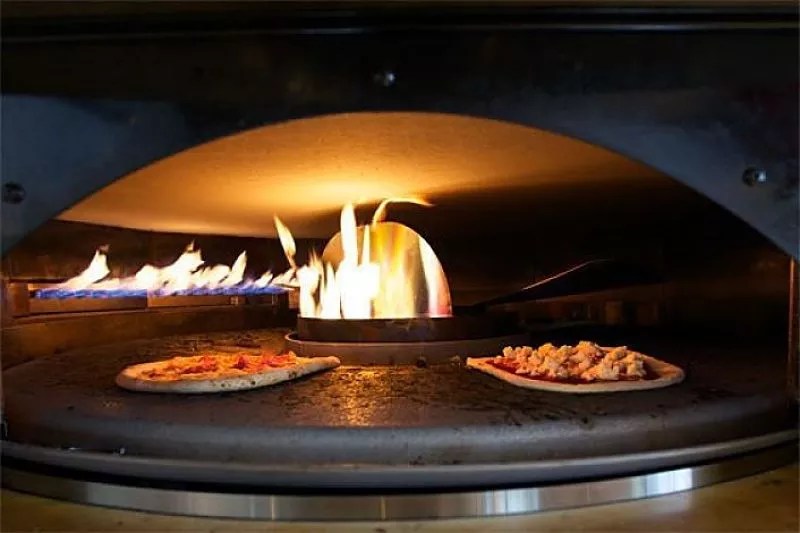
Jay Vollmar

Audio By Carbonatix
When Chipotle opened its first burrito shop in an old Dolly Madison ice cream store at 1644 East Evans Avenue back in 1993, it launched a new era of quick-service eating – and established Denver as the fast-casual capital of the country, as outlined in a Westword cover story published exactly a year ago. But the Mile High is about to lose that anchor point: Last week Brian Niccol, Chipotle’s new CEO, announced that he’ll move the company’s headquarters to Newport Beach and close the Denver office, putting the lid on 400 jobs in the process. (Doesn’t Niccol know that people are LEAVING the coasts and COMING to Denver? California is over, man.)
When Chipotle leaves, will Denver’s crown as the king of fast-casual concepts go, too? Here’s the current status of this city’s homegrown fast-casual companies:

The original Chipotle at 1644 East Evans.
Mark Antonation
Smashburger: Rick Schaden and Tom Ryan launched Smashburger in 2007, naming it for the smashed, griddle-cooked burgers that underpin its offerings. Rapid growth followed, and in 2015, Filipino restaurant group Jollibee acquired a 40 percent stake. That group upped its investment in February this year and now owns 85 percent of the company. Smashburger remains headquartered here, however, and now operates 370 locations across 37 states and nine countries.
Garbanzo: Alon Mor opened the first Garbanzo in an old pizza restaurant in 2007, giving the Mile High City an outlet for quick, fresh Middle Eastern food. Mor left the company in 2014, and the reins passed to current CEO James Park in late 2015. The chain, which is still headquartered in Denver, rolled out a new prototype restaurant earlier this year featuring a lighter space. There are now 26 locations across the country, and the company announced this week that it will open in DIA next year.
Modern Market: Modern Market began life in Boulder in 2009 as ModMarket, but founders Anthony Pigliacampo and Rob McColgan were forced to change the name after a trademark dispute. Earlier this year, L.A.-based Butterfly Equity, a private equity firm that operates in what it calls the “seed to fork” food industry, bought into the company. The move was billed as a partnership aimed at expansion, and the headquarters remain here.
Qdoba: This burrito chain, which was originally named Zuma, rolled out its first location at Grant Street and Sixth Avenue in 1995, two years after the debut of Chipotle. Two name changes and two lawsuits later, the company became Qdoba in 1999. Jack in the Box acquired the chain in 2003; in December last year, that company sold it off to a consortium led by private equity firm Apollo Global Management. Jack in the Box kept Qdoba’s headquarters in the Denver suburbs until 2017, when it relocated to San Diego.

The Illegal Pete’s on East Colfax Avenue.
Mark Antonation
Illegal Pete’s: Pete Turner launched his Mission-style burrito joint on the Hill in Boulder in 1995, quickly becoming a beloved fixture of college dining. Pete’s has since expanded into a handful of locations around the state (including one in the former home of Lou’s Food Bar at 1851 West 38th Avenue), as well as Tucson. It remains privately held and headquartered here. Turner has instilled Illegal Pete’s with a Colorado ethos – and Colorado craft beer – and musical chops that attract both stars and rising stars from across the country.
Tokyo Joe’s: Founder Larry Leith says he came up with the idea for Japanese fast-casual while living in Arizona, but he was back in Colorado when he opened the first Tokyo Joe’s in 1996, on East Dry Creek Road in Centennial. The chain likes to boast that it’s been “Colorado Owned. Colorado Grown.” ever since. Private equity firm Gridiron Capital acquired a majority stake in 2013, but left the company’s headquarters in Englewood. The bulk of its 49 locations (and one coming soon) are located in the Centennial State, but Tokyo Joe’s can also be found in Arizona, California and Texas.
Noodles & Company: Founder Aaron Kennedy based the original Noodles & Company, which opened in 1995, on an Asian noodle restaurant he frequented in New York City, then tweaked the concept significantly after a rocky start. By 1996 he’d righted the ship, and Noodles started a major growth spurt that eventually grew to hundreds of locations. Catterton Partners and a group of investors bought a majority stake in 2010, and in 2013, Noodles went public. Last year the chain closed 55 underperforming restaurants. Its headquarters remain in Broomfield.

Pizzeria Locale’s concept is fueled by this oven.
Danielle Lirette
Larkburger: After perfecting a burger at Larkspur, a fine-dining restaurant in Vail, chef Thomas Salamunovich says, he raised all the money for the original Larkburger during one dinner service. The first outpost of that burger launched in 2006, and has since expanded into a dozen locations across the state. Last year the company crossed the Colorado border for the first time, opening in Kansas City.
Pizzeria Locale: Frasca Food & Wine partners Bobby Stuckey and Lachlan MacKinnon Patterson opened the first Pizzeria Locale in Boulder, where they sought to capture the spirit of true Napolitano pizzerias. By the time outpost number two landed at 550 Broadway in Denver, the concept had been tweaked for expansion. In 2013, Chipotle got in on the action, backing the pizza chain’s future growth. Today there are seven locations, five outside of Colorado; these don’t include the Boulder original, which remains distinct and separate from the burgeoning chain.
Quiznos: Quiznos often gets credited for paving the way for fast-casual in this city, since its upgraded approach to sandwiches was novel when it first rolled out in 1981 at a location that’s still open in Capitol Hill. Rick Schaden (see Smashburger, above) bought his first franchise in 1987; he and his father subsequently became majority owners. But Quiznos went through some rocky times, shrinking from a high of 5,000 locations in 2008 to around 2,000 in 2014, when it filed for Chapter 11 bankruptcy. It’s since emerged from bankruptcy and restructured, and its headquarters remain in Denver.